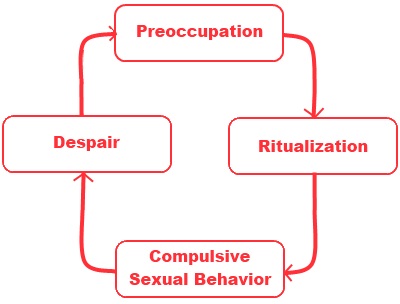Hypersexual disorder first grabbed media attention after celebrities like Jesse James, David Duchovny and Tiger Woods engaged in numerous affairs and were treated for “sex addiction.”
affairs and were treated for “sex addiction.”
In the mental health field, sex addiction is known as hypersexual disorder. Although the idea that someone can be addicted to sex has been controversial, a new study supports treatment of hypersexual disorder as a legitimate mental health condition.
The American Psychiatric Association will consider hypersexual disorder a diagnosable mental health condition if scientists can identify criteria that accurately describe the behavior. It also must be shown that individuals who fit the criteria can benefit from diagnosis and treatment. A group of scientists have proposed a set of hypersexual disorder criteria and recently completed a study to test the criteria’s accuracy.
The study was based on interviews with over 150 patients who sought help at outpatient clinics for unconstrained sexual behavior. The criteria used for the study included “recurrent and intense sexual fantasies, urges, and behavior” for a period of six months or more. These fantasies and urges must be uncontrollable and interfere with day-to-day life.
The study also indentified a variety of uncontrollable sexual behaviors including:
• Masturbation
• Viewing pornography
• Phone sex
• Cybersex
• Frequent visits to adult entertainment venues
• Excessive sexual contact with one or more partners
A hypersexual disorder diagnosis is not appropriate if an individual only engages in the harmful behavior while under the influence of drugs or alcohol or is under 18 years of age. Using the above characteristics, scientists were able to accurately diagnose hypersexual disorder almost 90 percent of the time.
In addition to identifying the characteristics of hypersexual disorder, this study shows that the effects of this disorder can be devastating. The negative consequences of compulsive sexual behavior can include contracting sexually transmitted infections, ending relationships, reckless spending, losing jobs, and hurting loved ones. For some individuals, the consequences of hypersexual disorder are so distressing that they engage in self-harm.
The findings of this study, which were published in the Journal of Sexual Medicine, provide additional evidence that hypersexual disorder should be included in the latest edition of the Diagnostic and Statistical Manual (DSM), which is considered the most reliable resource for mental health diagnoses. Many mental health experts are pushing to include hypersexual disorder in this critical diagnostic tool and for the acceptance of sex addiction as a legitimate diagnosable and treatable mental health condition.
